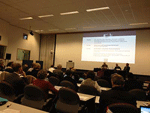Cyprus: Lifelong learning and the post-MDGs agenda
Published on Tue, 2013-05-14 17:18
The main problem with the MDGs, globally, is that the overall approach towards development they represent is quite narrow, limiting countries’ incentives to institute structural changes that would foster development. This is particularly evident in the case of Goal 2: ‘Achieve Universal Primary Education,’ which excludes economically active people in developing countries who are in need of further education, re-skilling or vocational training. Using the case of Cyprus, we can examine how the Lifelong Learning strategy it adopted made the link between LLL and sustainable development, and ask whether the Cyprus model provides a potential model for developing countries in the post-MDG agenda. It can be argued that this specific goal is restrictive for large sections of the population, excluding people in developing countries who are of economically productive age and who are in need of further education, re-skilling or vocational training. These persons could be immensely benefited by an all-embracing approach towards education aiming at developing a Lifelong Learning (LLL) and knowledge-based society. In recent years the Republic of Cyprus has emphasized the value of LLL through the implementation of various initiatives designed to boost access to the programmes offered through LLL. The support for LLL in Cyprus can be seen by looking at the percentage of the people who participated in LLL education and training, which has increased by 1.6% in a period of six years, reaching 7.5% in 2011. This improvement can be attributed to the implementation of the Lifelong Learning Strategy for Cyprus, 2007-2013. Broadly, the goal of the Lifelong Learning Strategy for Cyprus is to support formal, non-formal and informal education as well as training for all citizens, throughout their lifetimes, as an imperative contribution to their individual success and completion, and their ability to adjust to ongoing changes. Essentially, these changes derive from the rapid substitution of new knowledge and technology for existing forms, ongoing demographic transformations, as well as the need for the acquisition of new skills for new jobs. It is imperative to stress at this point, the value of LLL especially in the rapidly changing environment that we all live in today. LLL has become a vital determinant of people’s prospects to work, integrate, and flourish in society as well as an essential factor in the country’s potential for social as well as economic sustainability and development in a time of global financial and social crisis. The importance of LLL for Cyprus and its connection to sustainable development is also highlighted in the Revised National Strategy for Sustainable Development (2011-2015), where it is also stressed that LLL is a vital instrument to foster and sustain development. LLL for Cyprus follows the European Union (EU) vision, based on which lifelong learning constitutes a process that includes every learning person’s activity during his/her lifetime, and which aims at strengthening their competence to face the challenges that can arise in the market and the society. Thus based on these premises, Cyprus aims to establish a system which guarantees that everyone will have the motivation, support, and the resources to participate in training activities throughout their lives, with the objective of creating a society in which every citizen will be socially and economically active and contribute to the overall development process of the country. Source: Social Watch Report 2013, National report from SW Cyprus. |
SUSCRIBE TO OUR NEWSLETTER



